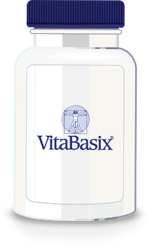Among other things, pregnenolone is the parent substance of the male and female sex hormones (estrogen, testosterone), stress hormones (cortisol) and DHEA. As the amount of the body’s own pregnenolone decreases with advancing age, the metabolic functions that depend on the hormones derived from pregnenolone also decrease.
Pregnenolone is produced in many organs and cells of the human body, primarily in the adrenal gland, liver, skin and sex glands (testes and ovaries). Similar to DHEA, it follows a daily rhythm, with peak levels around 8am and very low levels just before midnight.
The Pregnenolone metabolism is very complex. All substances in this basic hormonal category have one thing in common: their chemically defined structure. Pregnenolone is the first hormonal metabolic product that is formed when fatty substances such as cholesterol are absorbed from food. Therefore, it is also the primary building block for the production of almost all other endogenous steroid hormones. With pregnenolone as a precursor, the body produces exactly the amount of hormones needed at any given time. Unfortunately, the amount of endogenous pregnenolone available in the body decreases with age in both women and men; however, a gender-specific decrease has not been proven beyond doubt.
Since it has been found that 75-year-olds can only produce about 40% of the amount of pregnenolone of a 35-year-old, an additional intake of pregnenolone may be recommended to compensate for deficiencies. A deficiency can result in fatigue, a drop in performance, reduced memory and a dysfunctional immune system, among other things.
Pregnenolone plays an essential role in certain brain functions. In fact, pregnenolone levels in the human brain are many times higher than in the blood. The number of brain cells decreases significantly with age, as does the amount of pregnenolone and other hormones produced in the brain. The continuous decrease of these substances in the brain simultaneously leads to a decrease in mental performance. For this reason, too, individualized pregnenolone supplementation can be useful. Pregnenolone can help improve cognitive performance and memory, positively support mood and increase resistance to stress.
In addition, pregnenolone has other beneficial effects on the body. For example, the substance has been shown to positively support the ageing process, promote normal joint function and relieve tiredness and fatigue, among other things. In fact, it has been found that pregnenolone and DHEA levels are often significantly lower in people with joint problems. As a precursor to female sex hormones, pregnenolone may also be useful for menopausal women, improving overall well-being during this time.
If the body’s own production of pregnenolone is impaired or there is an increased need, this hormone precursor can be supplemented through special food supplements.



 Chronobrands
Chronobrands



Reviews
There are no reviews yet.